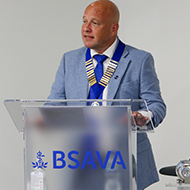Latest cost of living survey ‘worrying’ for horse owners
One respondent sacrificed food, heating and diesel to keep their horse
The National Equine Welfare Council has published the results of its survey, which investigated the effect of rising living costs on horse ownership.
It says that the survey, which was completed by over 6,000 horse owners in England, Wales, Scotland, and Ireland, reveals a ‘worrying’ picture for horse keeping.
Eighty-one per cent of respondents expressed concern about the continued pressure that increased costs were putting on their finances. Meanwhile 39 per cent said that rising costs had a medium or high impact on their ability to keep their horse – meaning they had to make additional sacrifices to provide basic care.
The rising costs were spread across different elements of horse care, with 80 per cent reporting an increase in veterinary fees, 65 per cent in farrier services and 62 per cent in insurance costs.
This has led to 20 per cent of horse owners taking on an additional job, or increased hours to cover their horse’s care. Significantly, two per cent were considering giving their horse up to a charity due to the pressures and five per cent were considering euthanasing their animal.
An anonymous respondent said that they were unable to cover out-of-hours veterinary care, stabling or regular farrier visits. Another respondent said they couldn’t afford to keep their horse in work, and had therefore retired it to a field.
Despite the rising costs, horse ownership proved vital to the mental health of some owners. One respondent, now unable to work, was going without food, heating and diesel because their horse was so important to them.
For the first time, concerns about climate change and bad weather also featured in the free comment section of the survey.
Horse owners were concerned about how bad weather affected grazing, and the corresponding turnout challenges.
Rebecca Boulert, education officer at World Horse Welfare, said: “We know from last year’s research that many owners were just about coping, all possible cost savings had already been made, so they really were feeling the pressure.
“This year’s survey shows that these problems are just not going away.”
The full survey can be found here.
Image © Shutterstock



 Julian Hoad has been confirmed as the new president of the British Small Animal Veterinary Association (BSAVA), taking over from Carl Gorman.
Julian Hoad has been confirmed as the new president of the British Small Animal Veterinary Association (BSAVA), taking over from Carl Gorman.